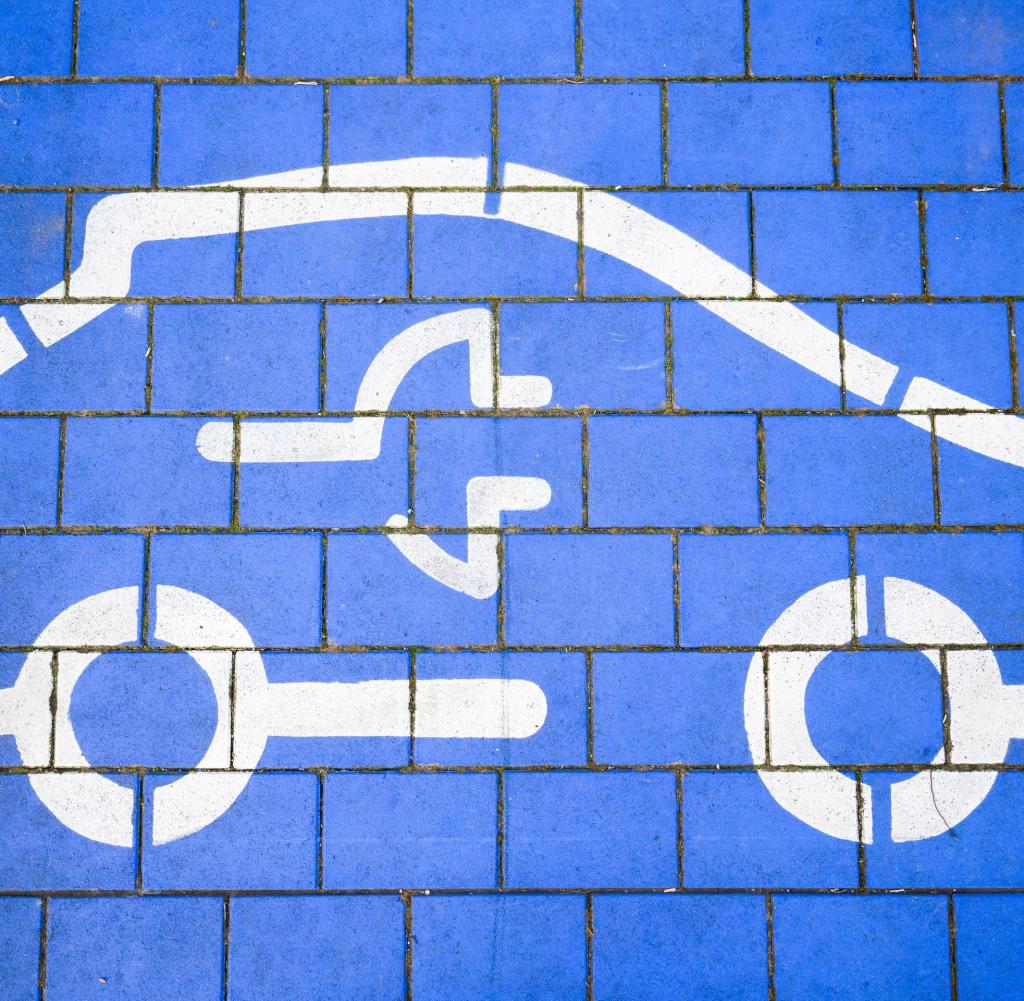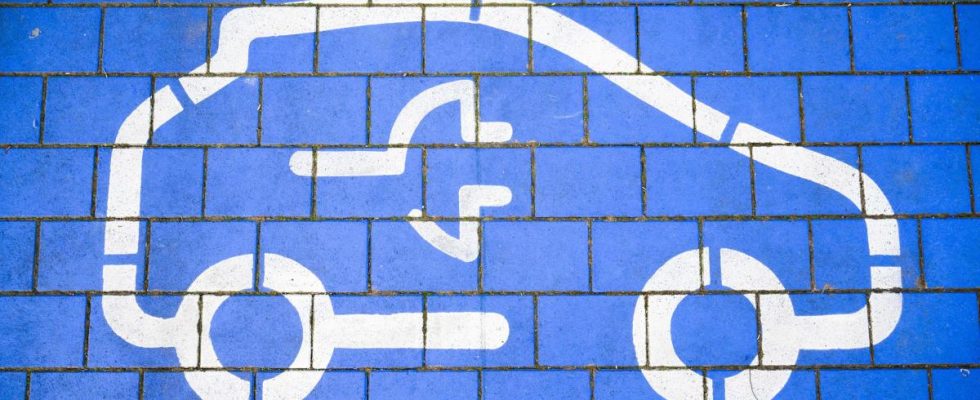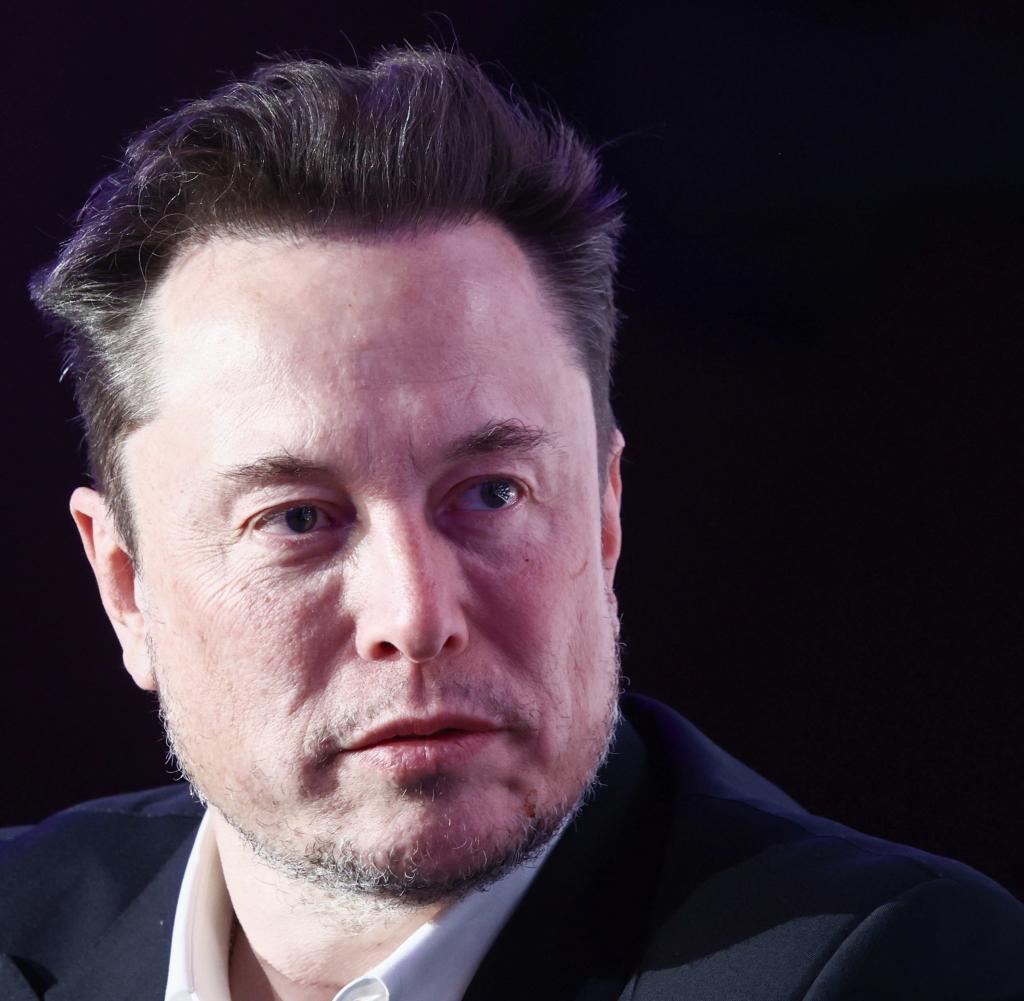Number of new registrations of electric cars fell by 29 percent

Despite high discounts from many manufacturers, “demand for electric cars is currently very weak”
Source: dpa/Julian Stratenschulte
Compared to last year, fewer electric cars were newly registered in March. The weak demand is attributed to the expiry of funding. This led to “considerable uncertainty,” said one expert.
FThings are currently looking bleak for electric drives on German roads: As the Federal Motor Transport Authority (KBA) announced on Thursday, new electric vehicle registrations fell by almost 29 percent in March and only accounted for 11.9 percent of new registrations . A year ago the market share was 18.3 percent.
“The demand for electric cars is currently very weak – despite the high discounts that many manufacturers have given to compensate for the loss of the environmental bonus,” commented EY expert Constantin Gall on the figures. The political decision to let the funding expire last year “led to considerable uncertainty in the market”. “Little will happen on the electrical market this year. We expect sales to be at the same level as last year at best,” Gall continued. Manufacturers would rethink their investments in electromobility and put more money into the further development of the combustion engine.
A total of 263,844 new cars were registered last month, 6.2 percent fewer than a year ago. However, the same month last year also had more working days. As the management consultancy EY announced, the market was still 24 percent below the pre-crisis level of 2019.
Gasoline engines continued to account for the largest share of new registrations in March, accounting for 37.8 percent – but that was also a decline of 3.4 percent. This was followed by hybrid vehicles with a share of 31.5 percent and diesel cars with 18.3 percent. Passenger cars that run on liquid gas or natural gas came to 0.5 percent.
Wissing relies on e-fuels
The e-car subsidy for commercial users was already eliminated in September last year, and then surprisingly for private users in December due to the budget crisis. The Association of International Motor Vehicle Manufacturers (VDIK) announced on Thursday that this had a lasting impact on customer trust in the BEV market. “The current discussions about a possible end to the combustion engine phase-out planned by the EU for 2035 are also counterproductive.”
“We are now seeing not only in Germany, but everywhere, including Europe, that electric vehicles are not being bought to the extent expected,” said Federal Transport Minister Volker Wissing (FDP) on Thursday in the ZDF “Morgenmagazin”. He reiterated his stance not to rely exclusively on electric cars for the transport transition. “We have a greater chance of achieving climate protection if we keep several technologies open,” said Wissing. He referred to drives such as hydrogen or synthetic fuels for combustion engines, so-called e-fuels.
But these are viewed critically for car traffic. “The reference to e-fuels is misleading because this expensive and energy-intensive technology is needed where there is no climate-neutral alternative in the foreseeable future, especially in shipping and air traffic as well as in parts of industry,” write Hochfeld and Room from the Agora Verkehrswende. “For the time being, there will be no significant quantities of e-fuels at affordable prices for combustion cars.”



